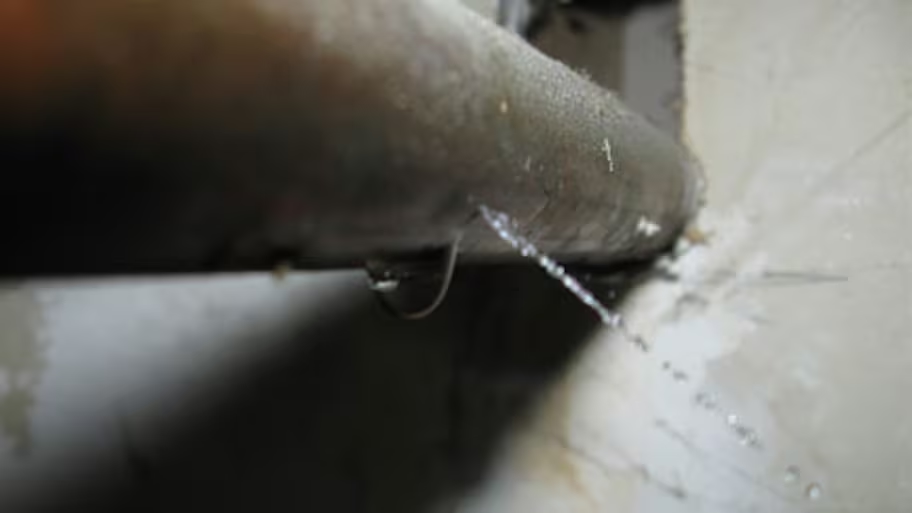How to Avoid the Six Most Common Water Leaks in Your Home
How to Avoid the Six Most Common Water Leaks in Your Home
Blog Article
Each person seems to have their own individual thinking when it comes to Most Common Causes of Leaky Pipes.

Leaks not only create waste of water yet can likewise trigger unnecessary damages to your home and also advertise undesirable organic development. By comprehending and looking for day-to-day scenarios that create leakages, you can safeguard your home from future leaks and also unneeded damage.
Instant temperature changes.
Extreme temperature modifications in our pipelines can trigger them to increase and also contract unexpectedly. This expansion and tightening might trigger cracks in the pipes, especially if the temperature level are below freezing. It would be best if you kept an eye on how your plumbing functions. The existence of the formerly pointed out situations frequently shows a high danger.
Rusty water systems
As time passes by, your plumbing system ages and also corrosion such as rust may begin gnawing the pipes. This may be the cause of discoloration or warping on your water pipes. This requires an inspection with your plumber promptly. If our plumbing system is old, consider replacing the pipelines given that they are at a greater threat of corrosion than the newer designs.
Malfunctioning Pipeline Joints
The point at which your pipes connect is often the weakest web link in the waterline. Pipeline joints can wear away over time, resulting in water leaks. Sadly, the majority of pipeline joints are not conveniently noticeable. If you have loud pipelines that make ticking or banging noises, especially when the hot water is turned on, your pipe joints are probably under a great deal of stress. It is advisable to have your plumber examine your system yearly.
Elbowing in origins
Most water leakages start outside the house instead than inside it. You might discover damp patches or sinkholes in your yard, and also that may mean that tree origins are getting into water lines causing water to permeate out.
Poor Water Connectors
At times, a leakage can be triggered by loosened hose pipes and pipes that provide your appliances. In instance of a water connections leakage, you may observe water running directly from the supply line or pools around your appliances.
Blocked Drains
Clogged drains could be frustrating and inconveniencing, yet they can in some cases wind up causing an overflow bring about rupture pipelines. Keep eliminating any products that might go down your drains pipes that can clog them to prevent such aggravations.
All the above are reasons for leaks but not all water leaks arise from plumbing leakages; some leaks could come from roofing leaks. All leakages should be fixed instantly to avoid water damages.
Leaks not just cause waste of water but can additionally trigger unneeded damages to your home as well as advertise unwanted natural growth. By recognizing and looking for everyday situations that create leaks, you can protect your house from future leaks as well as unnecessary damage. Today, we will look at six leakage creates that may be causing your pipes to drip.
At times, a leak can be caused by loose hose pipes as well as pipelines that provide your appliances. In case of a water links leakage, you might see water running directly from the supply line or puddles around your appliances.
How To Check For Water Leak In Your Home
How To Check for Leaks
The average household's leaks can account for nearly 10,000 gallons of water wasted every year and ten percent of homes have leaks that waste 90 gallons or more per day. Common types of leaks found in the home are worn toilet flappers, dripping faucets, and other leaking valves. These types of leaks are often easy to fix, requiring only a few tools and hardware that can pay for themselves in water savings. Fixing easily corrected household water leaks can save homeowners about 10 percent on their water bills.
To check for leaks in your home, you first need to determine whether you're wasting water and then identify the source of the leak. Here are some tips for finding leaks:
Take a look at your water usage during a colder month, such as January or February. If a family of four exceeds 12,000 gallons per month, there are serious leaks.
Check your water meter before and after a two-hour period when no water is being used. If the meter changes at all, you probably have a leak.
Identify toilet leaks by placing a drop of food coloring in the toilet tank. If any color shows up in the bowl after 10 minutes, you have a leak. (Be sure to flush immediately after the experiment to avoid staining the tank.)
Examine faucet gaskets and pipe fittings for any water on the outside of the pipe to check for surface leaks.
Undetected water leaks can happen without the home or business owner even realizing. If you suspect a water leak, but not able to find the source. It is time to contact a professional water leak detection service, The Leak Doctor.
How To Find a Water Leak In Your Home
https://www.leakdoctor.com/blog/How-To-Check-For-Water-Leak-In-Your-Home_AE197.html
Hopefully you liked our excerpt about Top Causes of Home Water Leaks. Thank you so much for taking a few minutes to read through our posting. So long as you enjoyed reading our blog entry if you please make sure you remember to share it. Thank you for your time. Visit us again soon.
Call Today Report this page